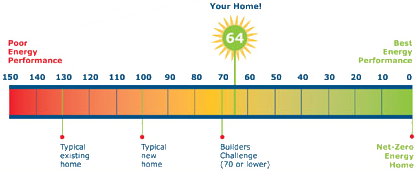
The state is upgrading the state energy code as part of the Green Communities Act. On May 12, the Massachusetts Board of Building Regulations and Standards (BBRS) approved the stretch code as an optional amendment to the 7th edition Massachusetts Building Code 780 CMR. Municipalities in Massachusetts do not have the legal authority to adopt their own code, but the recent passage of the state stretch code allows municipalities to adopt the tougher standard at their discretion.
This optional “stretch code” was developed in response to the call for improved local building energy efficiency in the commonwealth. The stretch code is about 30% more efficient than baseline code in Massachusetts. Some builders and developers worry the adoption of the stretch code will hinder a housing market revival and add additional red tape to the permitting process. Advocates contend that the stretch code will allow municipalities to improve the efficiency of buildings in their communities, helping to reduce greenhouse gasses and reduce fossil fuel consumption. See “Everything’s ACES” for additional context.
The stretch code would require a third-party certification for a HERS index rating of 60 or less on new buildings. The current base energy code in Massachusetts requires a maximum HERS rating of 99. For major renovations under the stretch code, a HERS index of 70 or less is required.
The City Council will need to adopt the stretch code by January 1 in order for it to go into effect by July 1, 2010. The City Council Health & Environment Committee is holding a hearing on the stretch code on July 28. The Climate Protection Action Committee and the Green Building/Zoning Task Force have recommended adoption.
